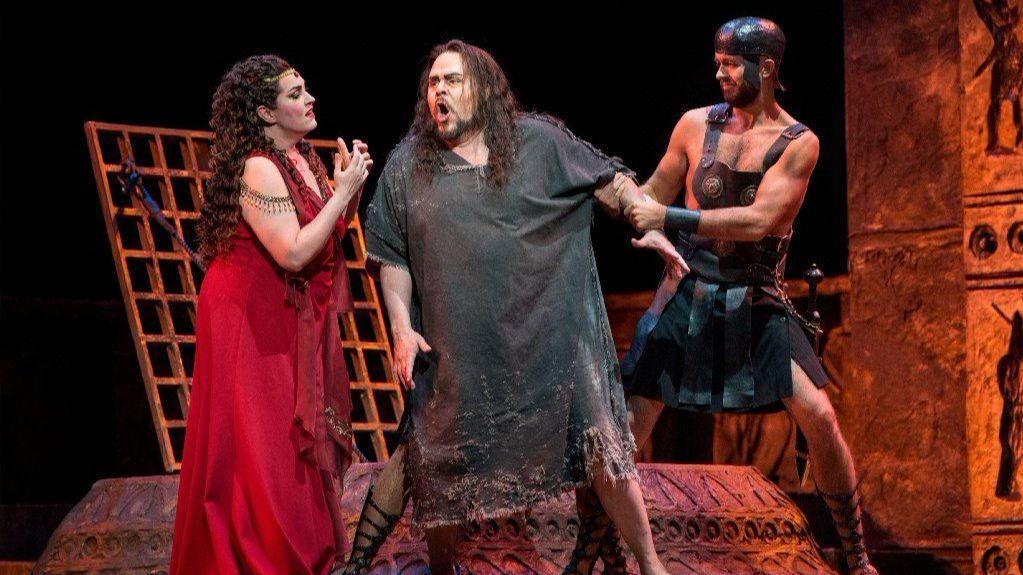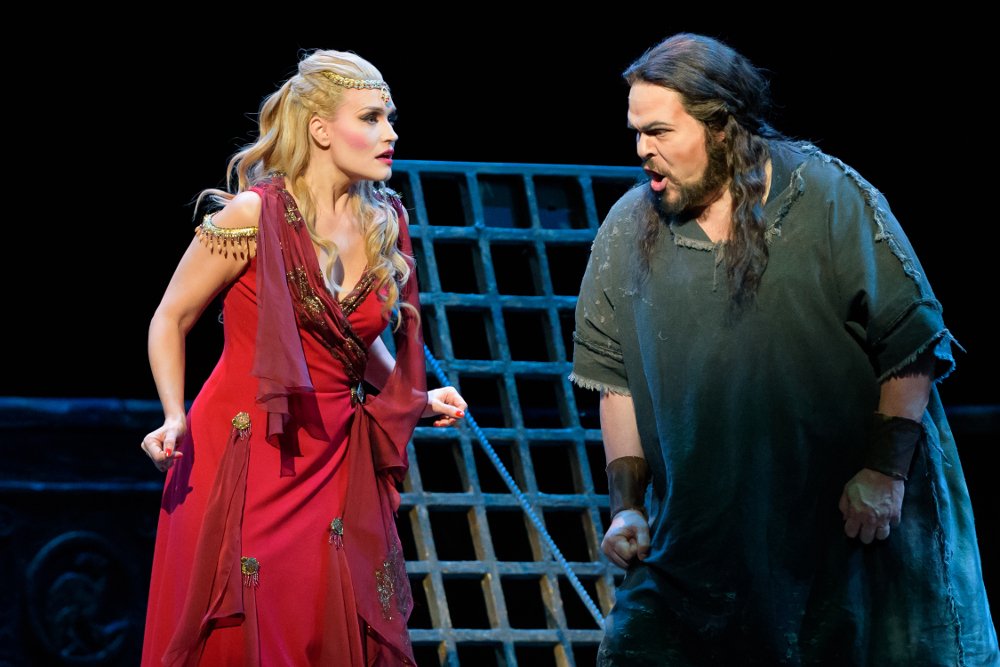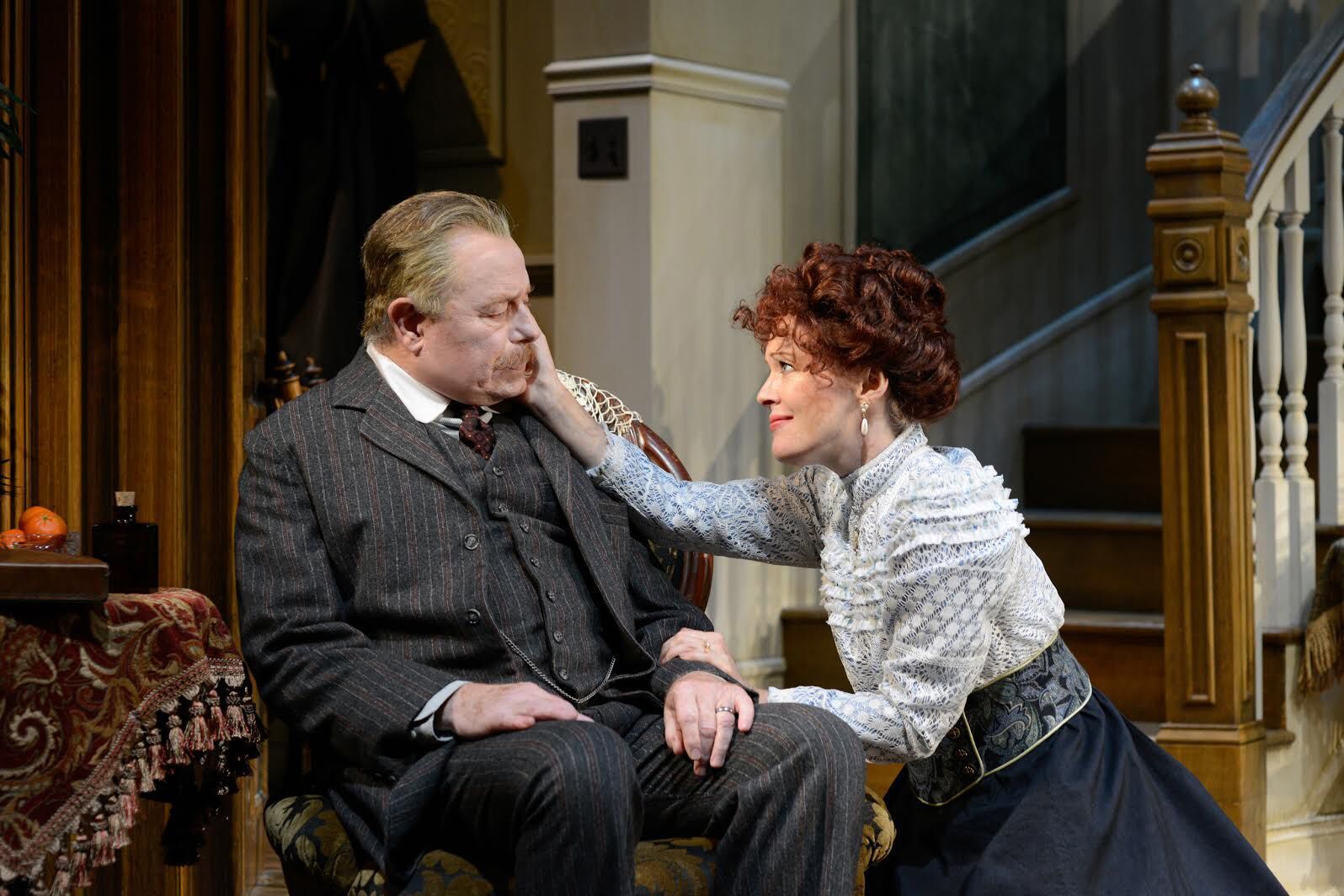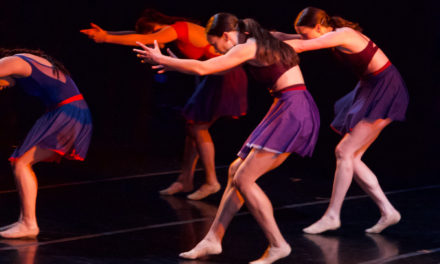
Richard Strauss wrote and produced Salome in 1905 when the world was on the brink of war and the musical cosmos was about to be blown to smithereens by the likes of Rachmaninoff, Schoenberg, American Blues, Elvis, Chuck Berry, Hendrix, and on and on. Salome is the story of King Herod and John the Baptist. It is the story of a New Testament episode central to the link between the Judeo-Christian Old Testament and the future of Christianity.
A tale of lust, envy, evil and tragedy, Salome was crafted to great dramatic effect by the Florida Grand Opera in their 2018 performance at the Adrienne Arsht Center in Miami. Founded in 1984, the Florida Grand Opera is now a noble and righteous institution, a grand master indeed of producing world-class operatic productions for the eclectic and well-heeled denizens of South Florida’s social and cultural flutterers. The performance I attended was led by Melody Moore in the role of Salome and John Easterlin as Herod.

The tale of incest and lustful longing makes for a rare glimpse into brazen sexuality laced with the rather melodramatic strings of the German Strauss. Ms. Moore’s Salome was a bawdy and lewd assemblage of fighting the will of Herod while succumbing to her own desire. The ensuing bloodbath and seduction is not for those expecting a cerebral night out.
Ms. Moore’s performance of the climactic Dance of the Seven Veils was accompanied by a coterie of chambermaids alluringly be-decked in costumes resembling ancient Egyptian finery and Roman loungewear. The lithe and sinewy chambermaids made for a striking contrapunto to Salome’s ample corporeal assertions of sex, envy and connivery during the fateful dance that first shocked audiences more than a century ago in Dresden where the piece was first performed. Adapted from Oscar Wilde’s play of the same title, Salome is one of those apocryphal stories in World literature that only the guilt-obsessed creators of Christianity could craft.
That the production took place entirely in one performance without an intermission and in one sole set made for a demand of strenuous attentiveness of the audience. I appreciated this demand while at the same time there were moments of crests and downturns in Strauss’s libretto that made me want to sprint to the bar for an over-priced Prosecco in a plastic flute. If there are weaknesses in this opera they are not the fault of the Florida Grand but rather a result of the limitations mono-sonic predictability of Strauss’s music.
While the performers as a group were admirable in their spirit, the lilting German coupled with the singularity of the sole set-piece sometimes exhausted my patience. Without a doubt the highlight of the evening was Ms. Moore’s final performance, cradling the head of John the Baptist as she is drenched in blood and singing of his beauty, her epic remorse, and the pain of loss and unfulfilled longing.



